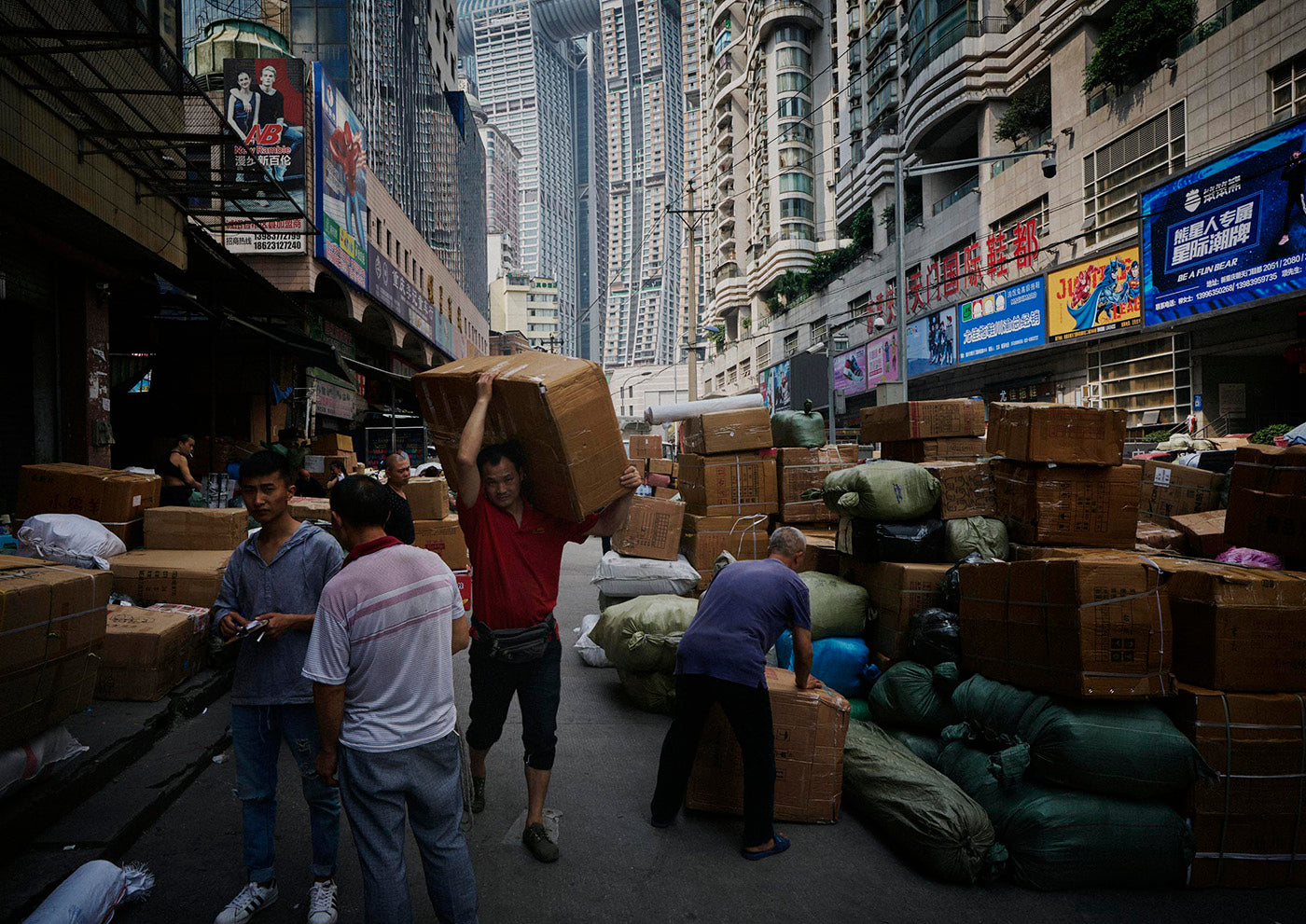
The Last Bang Bang Men of Chongqing
For centuries these men have transported the weight of Chongqing on their shoulders, today they face extinction as numbers dwindle from modernization
Every day from sunrise to sunset, an army of porters awake to transport goods across this mountainous megacity for anyone willing to pay them. Equipped with a bamboo pole or ’bangzi,’ whose name inspired the popular nickname of the porters, the Bang Bang men carry up to 80 kilograms of traded goods on their shoulders up steep hills and thousands of steps into the high-rise homes that dominate this metropolis. Danish photographer Ken Hermann has documented the dying days of this ancient culture.
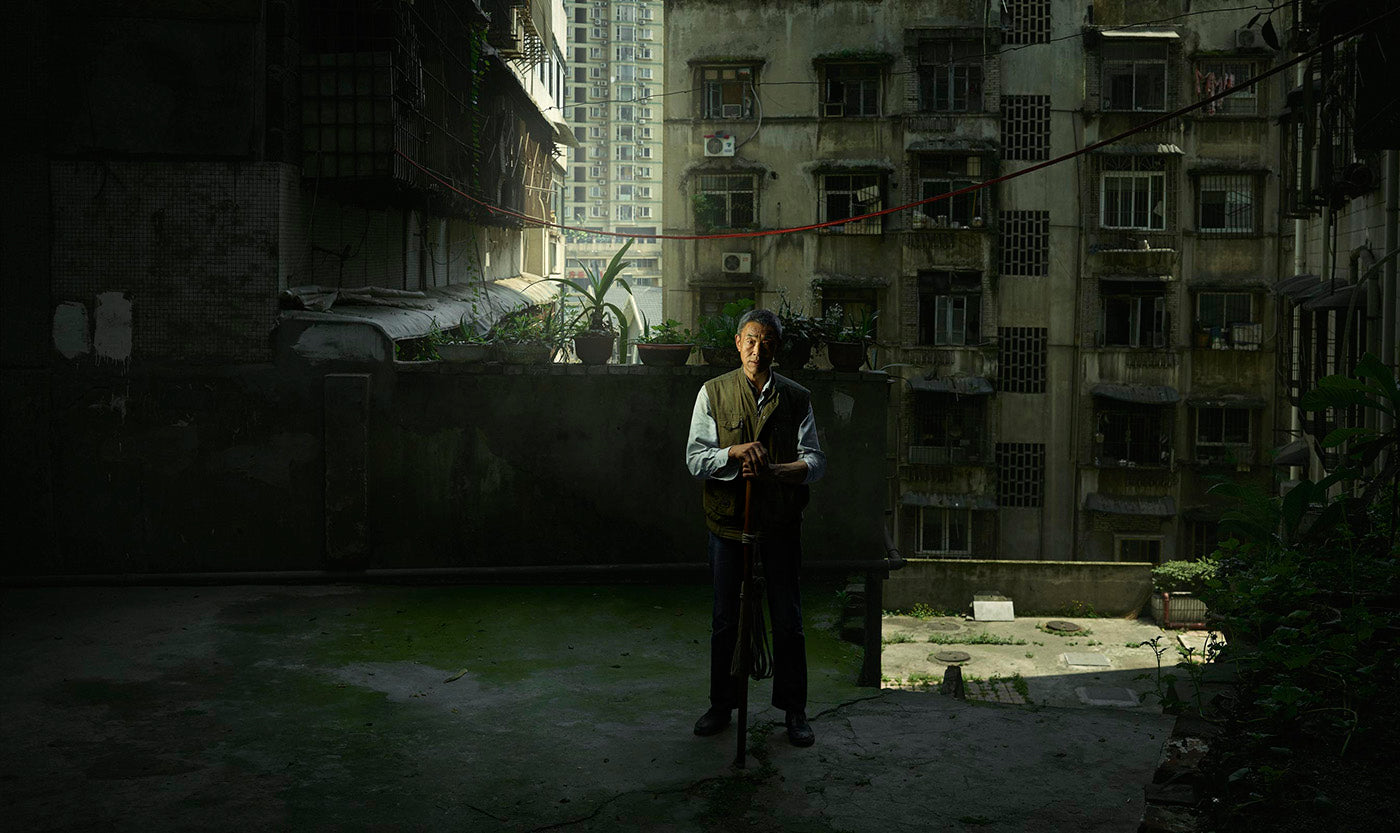
Hu Yong is 60 years old and has been a Bang Bang man for 25 years.
Carting boxes of sandals, tourist suitcases, or groceries that have just arrived at the harbor, these men have been the lungs of Chongqing for centuries. They kept the trade moving, and thus the city alive. Chongqing is comparable to Spike Jonze’s futuristic vision of a city in ‘Her.’ Walkways rise to 40 meters above ground to keep locals moving, a vertical way of living has been made possible through connected bridges, and skyscrapers are dotted for as far as the eye can see. But modern transportation, courier companies, and new migrants looking for more ambitious careers have whipped out thousands of Bang Bang men.

Chongqing is known as the 'Mountain City' in China, elevated pathways connect highly densely populated areas cramped within hills and slops.
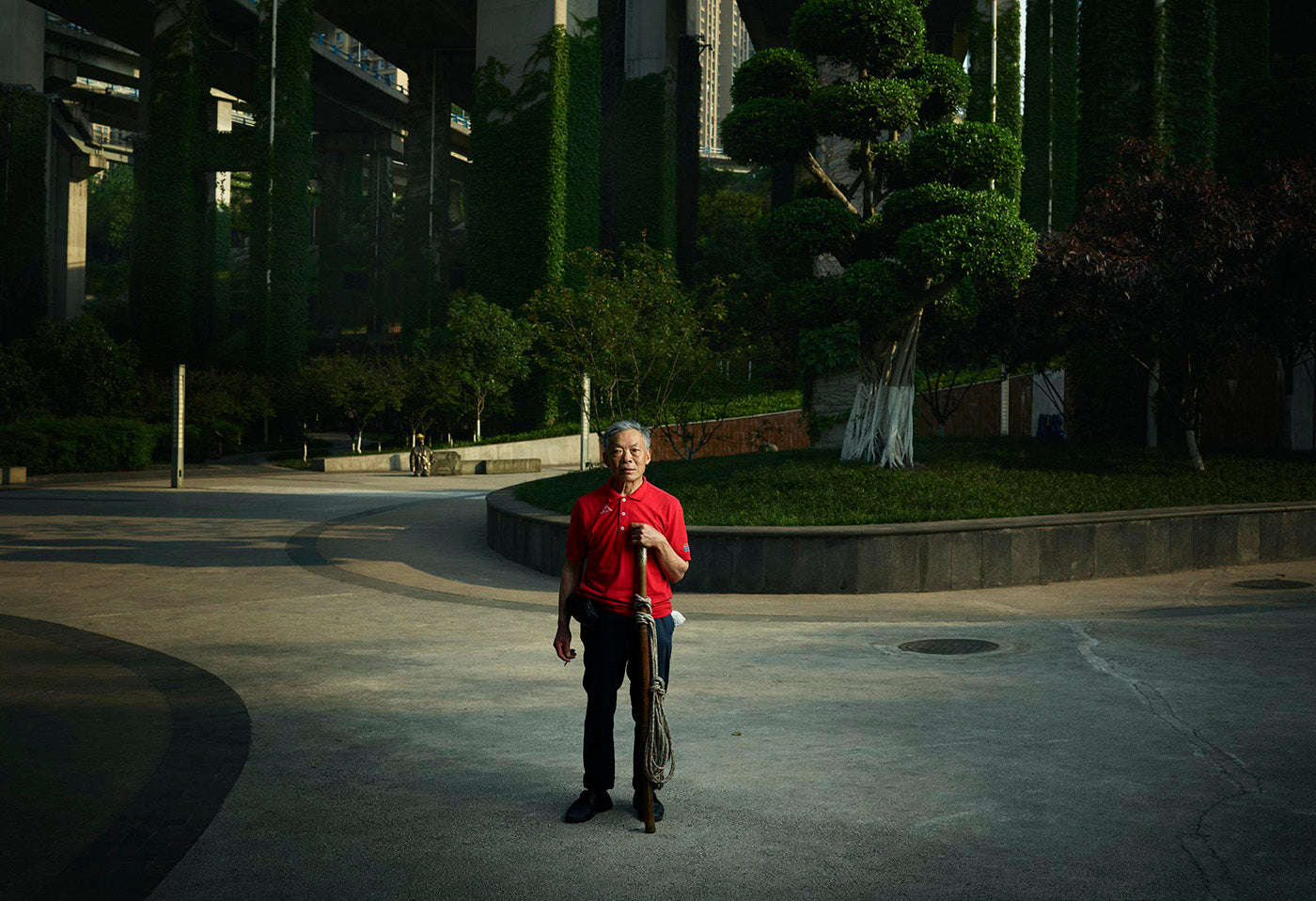
Li Daiwen is 63 years old and has been a Bang Bang man for 38 years.
Hermann tells us there are only 10,000 of them left. Over a thousand years ago, the Bang Bang men carried water up the riverbanks of Chongqing to the mountainous neighborhoods. Later they adapted their purpose following water technology advancements, instead opting to carry goods that docked in bustling port. Their hopes of adaption look slender today though. We talk to Hermann to find out more about these men and his series.
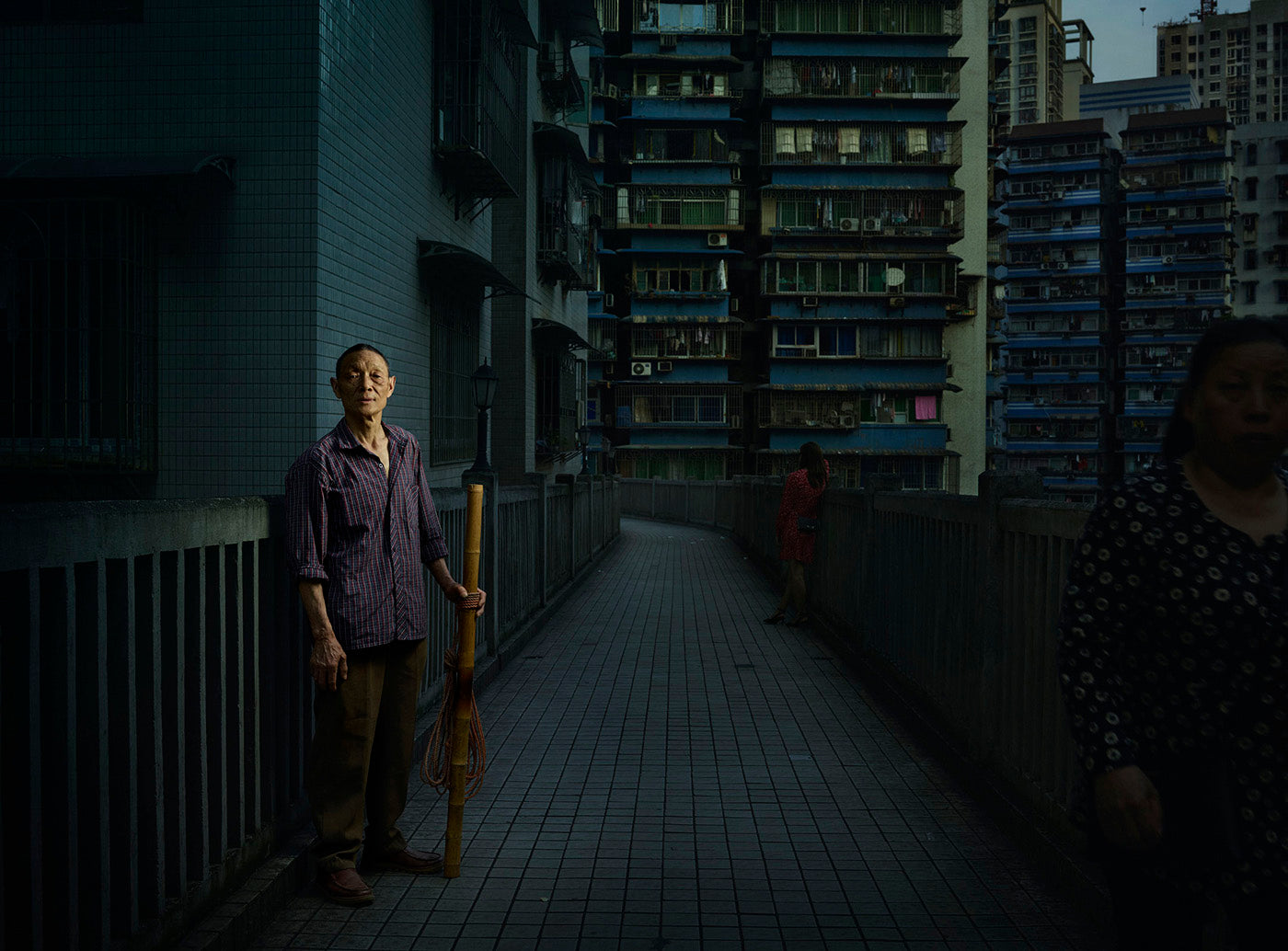
Rao Gang is 60 years old and has been a Bang Bang man for 31 years.
How did you find out about the Bang Bang men and how accessible were they to document?
Actually, I came across the Bang Bang men accidentally while researching for a project in Chongqing. I wanted to visit this place for years and have been trying to find a good excuse to go there. I was trying to find small stories in the big city, something that could help tell Chongqing’s story of rapid change—it’s a story about the Bang Bang men but also the city. I've worked in China before and have a good friend and fixer that helped me along the way and reaching out to the Bang Bang community. He has also been working as my translator as none of them speak any English.

Zhan Weilin is 54 years old and has been a Bang Bang man for 37 years.
Can you describe the art of their work and any interesting stories you came across about them while out there?
They work as day traders and porters, carrying everything that needs to be moved. Chongqing is built on several mountains with very steep roads and many staircases, so the best (and sometimes the only way) is to carry all the goods. They are mainly used by shop owners, but also by private people who need to get stuff moved. It was very interesting to get a glimpse into their lives, some of them used to be farmers, but because of agricultural decline, they had to move on and try their luck in the city. Some have been working their whole life as Bang Bang men.
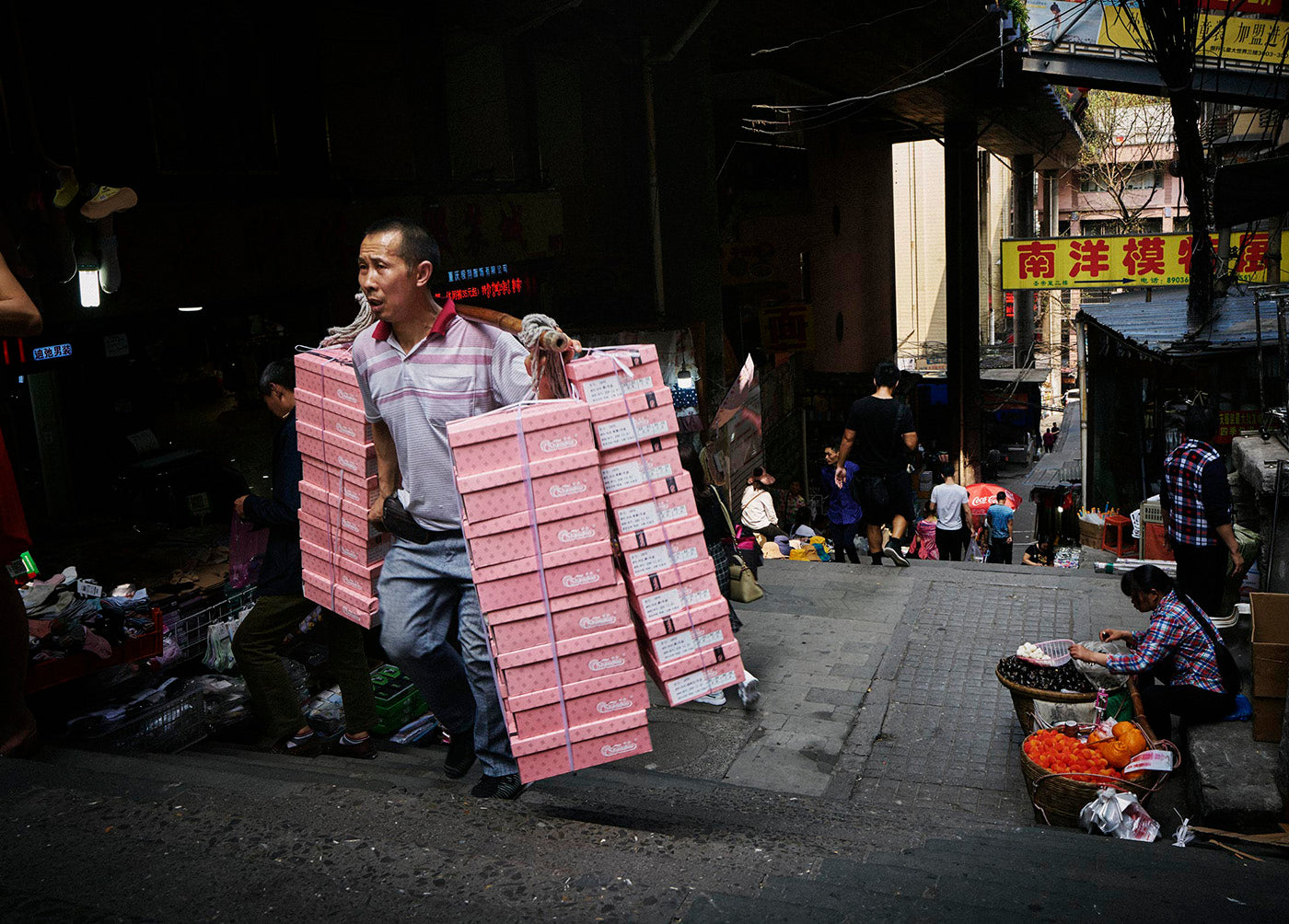
Chongqing's economic prosperity relies heavily on trade from the intersected Jialing River as well as the Yangtze River. Goods arrive in the city through boat, leaving the Bang Bang men to transport much of it.
What inspired you to tell their story?
I love telling stories and shooting portraits, especially of unique people who might otherwise be overlooked. The culture of China is very different from Copenhagen, where I'm from, which is also very fascinating and inspiring to me. I feel lucky to have the opportunity to travel the world and meet all these beautiful people and tell some of their stories.
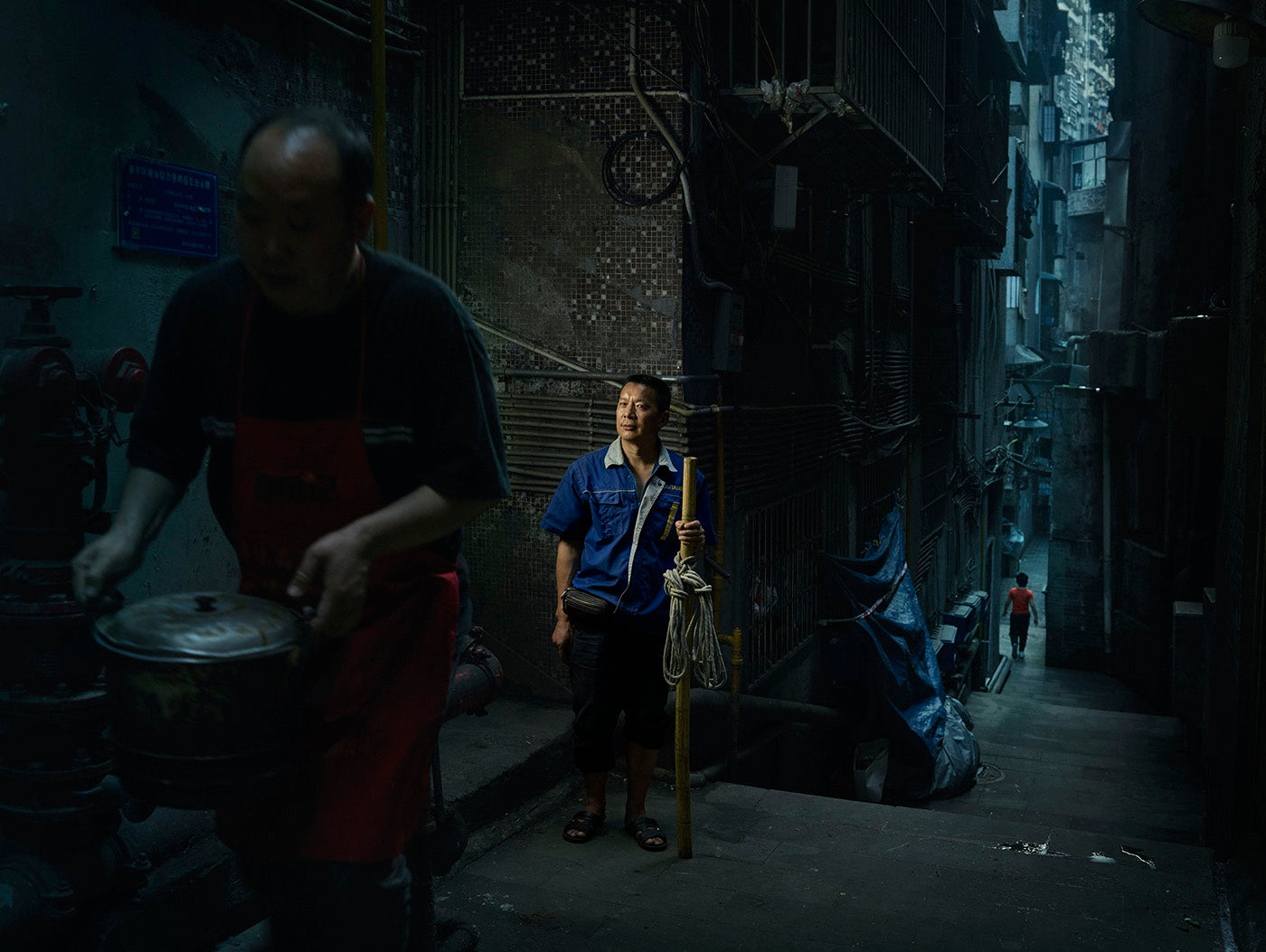
Tian Decai is 56 years old and has been a Bang Bang man for 26 years.
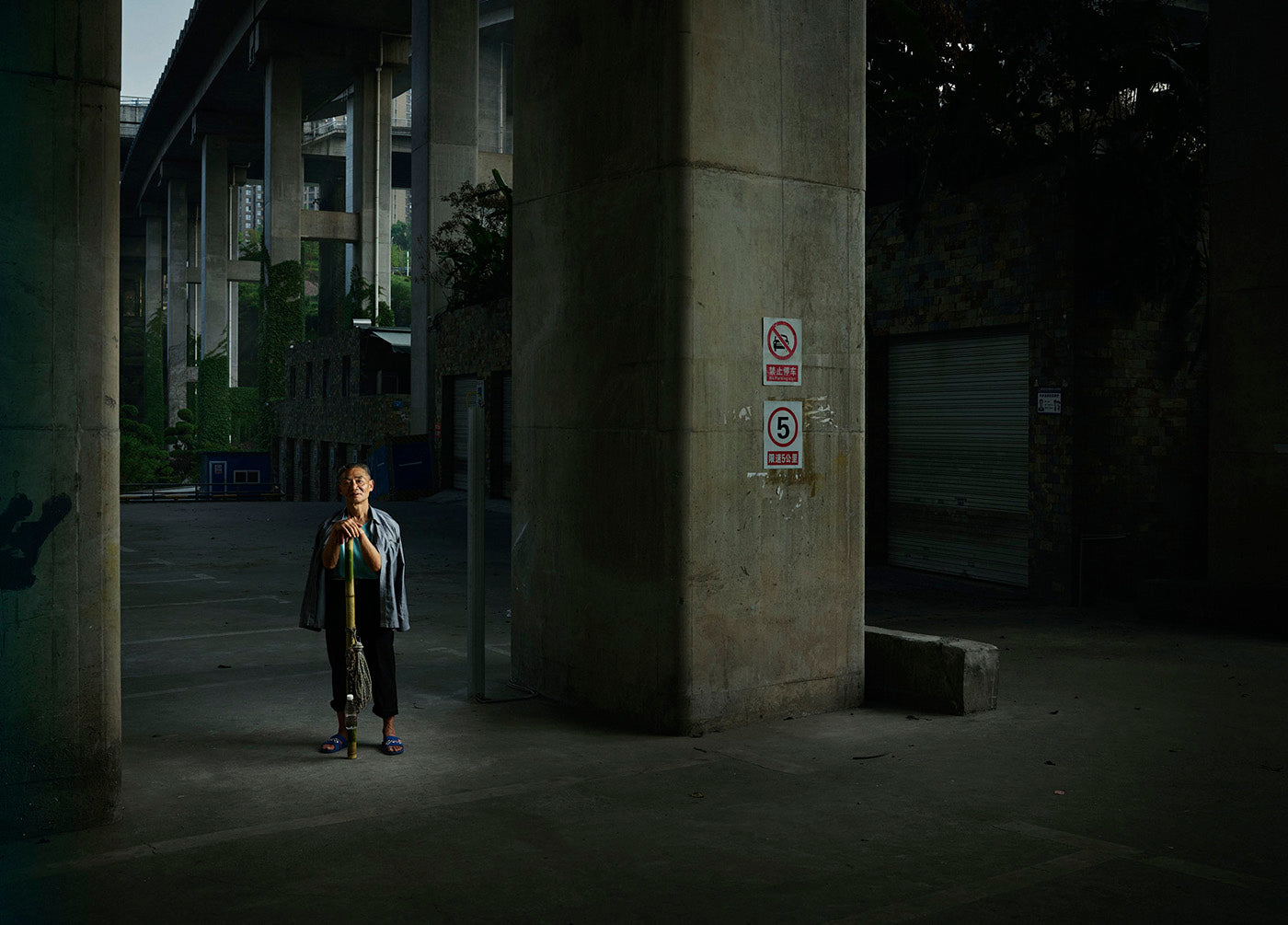
Tang Houpin is 56 years old and has been a Bang Bang man for 24 years.
What does modern China say about these century-old traditions?
They are very proud of their traditions, so proud they even made a huge statue of the Bang Bang in Chongqing.
Ken Hermann is close to revealing his next project, which this time turns to Bangladesh. In the meantime, watch the movie he created for our book with Norm Architects and Kinfolk here.



